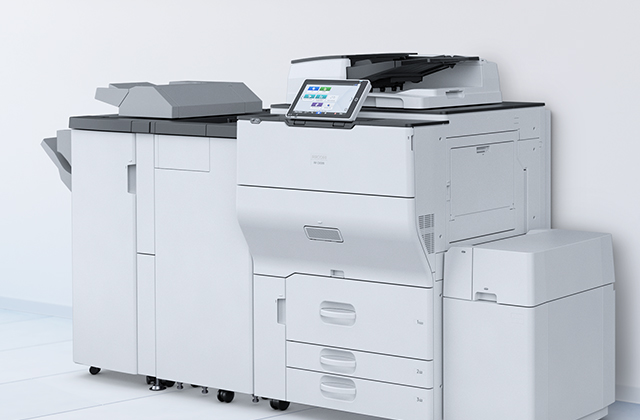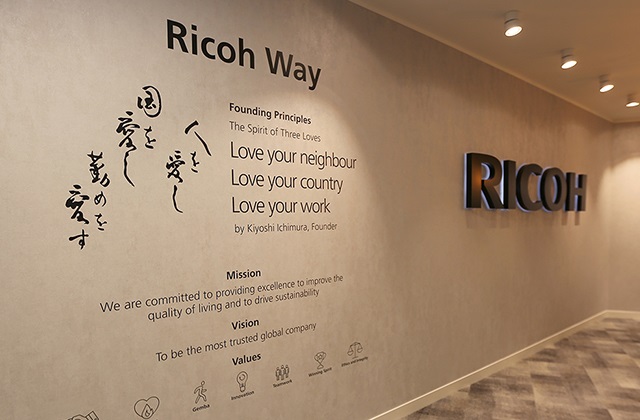The digital lottery: Will the single market significantly level the playing field for all?
By David Mills, CEO, Ricoh Europe
Ricoh Europe, 02 December 2015 – Despite rapid transformation in the past 20 years, Europe still lags behind most of the world when it comes to digital innovation in the workplace. Although 6-in-10 European businesses now consider themselves ‘digital’1, there’s still much work to be done for Europe to be considered a true digital leader. It is within this context that the European Union has driven forward the EU Digital Agenda, a plan to significantly up-scale the continent’s digital economy over the next five years. One key strand of the agenda is the creation of the Digital Single Market; the standardisation of regulations so that the same content, products and services will be available at the same price anywhere in the EU.
Estimated to make a contribution of €415 billion to the European economy2, the Digital Single Market is the chance for businesses of any size to enter new markets and accelerate their growth at a previously unimaginable pace. But the question on many business leaders’ minds is; “will all countries, and therefore the companies residing there, be treated fairly?”
Perceptions, given by business leaders, of their nation’s current digital strength vary wildly across the European Union. According to Ricoh’s research, almost a quarter of business leaders (24 per cent) describe their country’s digital position, its skills and infrastructure, as weak. In line with findings from the European Commission’s Digital Economy and Society Index3, the only places ranking as digitally strong are the Nordics and the Netherlands, where 64 per cent and 55 per cent, respectively, describe their country as either ‘very strong’ or ‘fairly strong’.
With the introduction of the Digital Single Market in 2016 imminent, does this disparity between different nation-states justify concerns that there will be little benefit resulting from the harmonisation of online markets across Europe? A quarter of companies sampled don’t believe there will be any benefits resulting from a Digital Single Market. Doubts from business leaders include the threat of increased competition (42 per cent), greater IT requirements (41 per cent) and VAT obstacles (36 per cent)4. All of which, for the unprepared, or under-resourced, seem troubling.
But is it just simply a question of readiness? The aim of the Digital Single Market is to create hope for the businesses of tomorrow, not fractures between countries and certainly not a ‘digital lottery’ of how well organisations will fare depending on their location. Even though the Digital Single Market’s introduction is less than 12 months away, an overwhelming 92 per cent of European businesses aren’t prepared5. In fact, only in the Netherlands, Austria and the Nordics are at least one in 10 businesses fully ready for the Digital Single Market. From a sector perspective, only in manufacturing are more than one in 10 businesses ready, with readiness in most other sectors between 6 to 8 per cent.
These figures are deeply worrying and suggest that millions of businesses across Europe will miss out on the benefits of the Digital Single Market from day one. The truth is that unless they take swift action they risk being outmanoeuvred by more agile rivals. With this in mind, businesses, particularly those in “weak digital nations”, need to pay attention to three key pieces of advice to turn this perceived threat into the opportunity it represents.
Firstly, businesses need to assess their current state-of-play and level of preparedness to build context around their position in the changing landscape. This includes paying attention to back-office functions just as much as customer facing operations.
Secondly, following an audit of their operations, businesses must standardise their systems and processes to drive efficiencies and cost savings, boost productivity and enhance their competitive edge.
Lastly, getting an outside view into the organisation in the form of expert consultancy is advisable. This will enable businesses to make use of existing knowledge of what it takes to grow internationally based on experience. Ricoh, for example, has been helping companies internationalise and standardise their operations for decades.
When we look at some of the perceived benefits of the Digital Single Market, such as an increase in the number of customers in new markets and improved internal efficiency, we can clearly see there is huge opportunity. Although ‘digital strength’ may differ across the EU, businesses need to realise they are in the driving seat. By failing to take the helm now, leaders risk playing catch-up from day one of the Digital Single Market era – a predicament no company can afford to find itself in.
1 http://ec.europa.eu/growth/sectors/digital-economy/importance/index_en.htm
2 http://ec.europa.eu/priorities/digital-single-market/
3 http://ec.europa.eu/digital-agenda/en/desi
4 Ricoh Europe: Digital Marketplace – Hope or Hype?
5 Ricoh Europe: Digital Marketplace – Hope or Hype?
| Over Ricoh |
Ricoh creëert digitale werkomgevingen door het gebruik van innovatieve technologieën en diensten die mensen in staat stellen slimmer te werken, vanwaar ze zich ook bevinden.
In de loop van zijn 85-jarige geschiedenis bouwde Ricoh een gecultiveerde kennis en organisatorische capaciteiten uit. Dat maakt van het bedrijf een toonaangevende leverancier van digitale diensten, informatiebeheer en print- en beeldvormingsoplossingen die zijn ontwikkeld om digitale transformatie te ondersteunen en bedrijfsprestaties te optimaliseren.
Het hoofdkantoor is gevestigd in Tokio, maar de Ricoh Group heeft belangrijke vestigingen over de hele wereld en haar producten en diensten bereiken vandaag klanten in ongeveer 200 landen en regio's. In het boekjaar dat eindigde in maart 2022 behaalde de Ricoh Group een wereldwijde omzet van 1.758 miljard yen (ongeveer 14,5 miljard USD).
Ga naar www.ricoh.be voor meer informatie.
© 2023 RICOH COMPANY, LTD. Alle rechten voorbehouden. Alle productnamen waarnaar wordt verwezen zijn handelsmerken van hun respectieve bedrijven.












